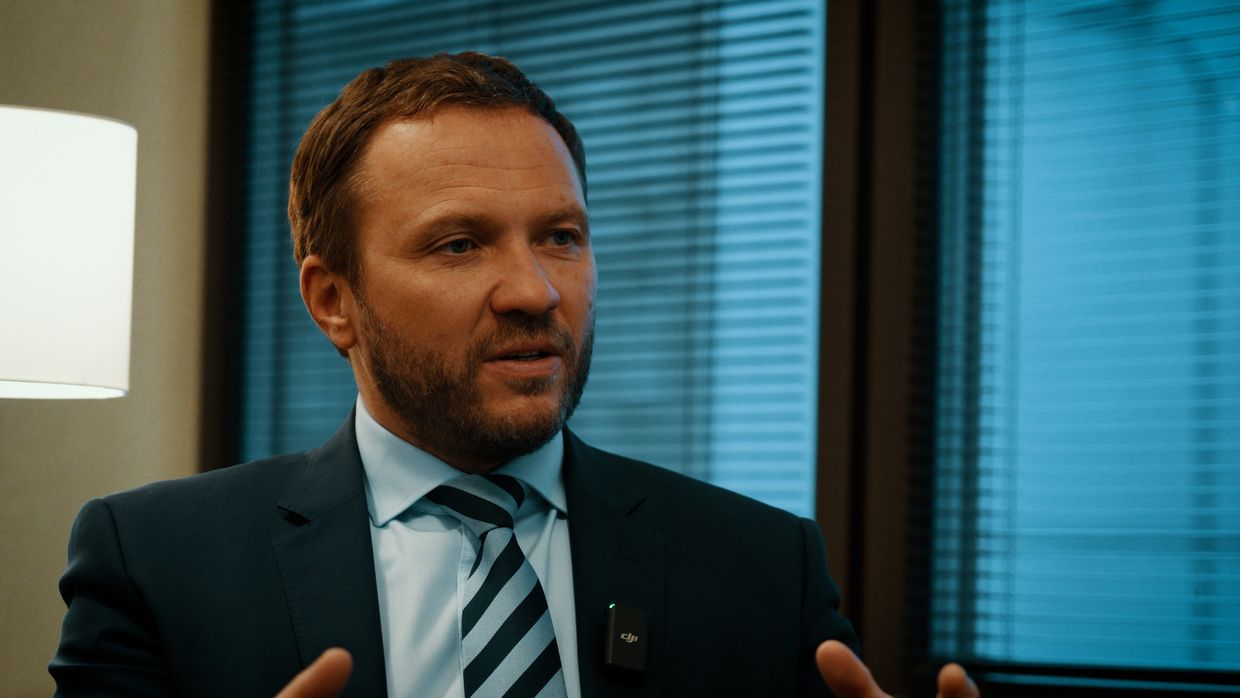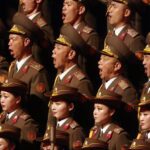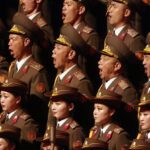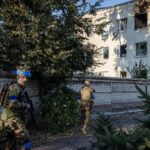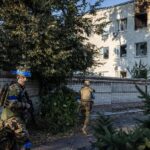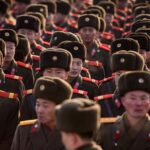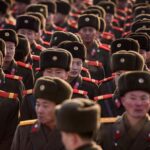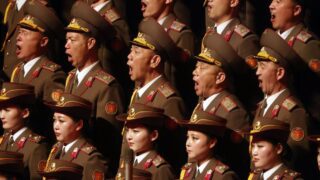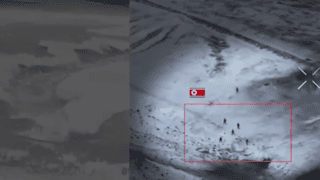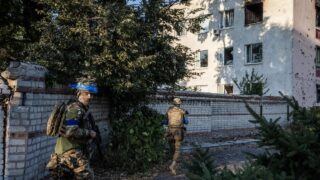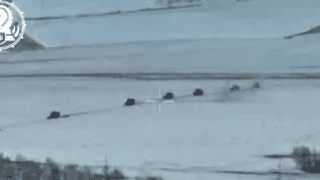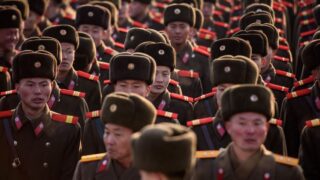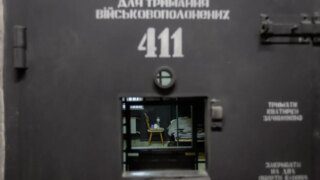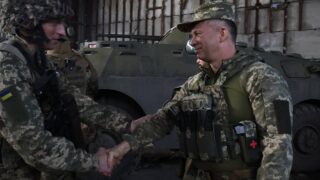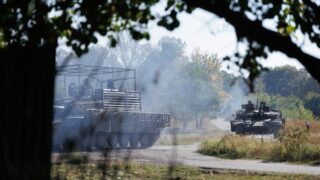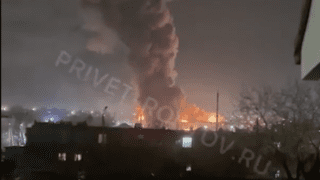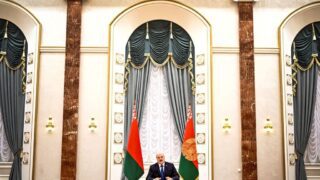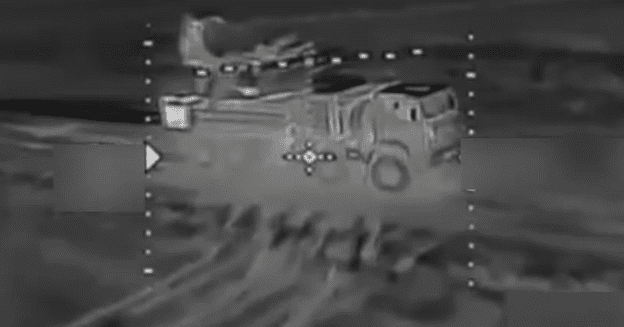
Ukraine war latest: Ukraine strikes 3 Russian air defense systems in single day; 3,800 North Korean troops killed, injured in Kursk Oblast
Key developments on Jan. 6:
- Ukraine strikes 3 Russian air defense systems in single day, Navy claims
- 3,800 North Korean troops killed or injured in Russia's Kursk Oblast, Zelensky says
- Ukraine's position in Kursk Oblast important for possible negotiations, Blinken says
- Zelensky offered to buy weapons from incoming Trump administration with frozen Russian assets
- Lukashenko apologized to Zelensky for Belarus' role, denied responsibility early in Russia's invasion, Zelensky says
- Russia fueling Transnistria energy crisis for propaganda, destabilization, Moldova says
- Macron sees no 'quick and easy solution' to Ukraine, urges 'realistic' discussions on territory
Two Russian anti-missile Pantsir-S1 systems and one OSA anti-aircraft vehicle were damaged or destroyed by Ukraine's Navy in one day, the military branch claimed on Jan. 6.
"Our soldiers continue to turn Russian equipment into scrap metal," Ukrainian Navy Commander Oleksii Neizhpapa said in a Facebook post referring to the three successful attacks.
In his post, Neizhpapa shared a video apparently depicting a drone zeroing in on a Russian Pantsir-S1 vehicle, claiming that the two Pantsir-S1 were destroyed in the occupied territory of Ukraine’s Kherson Oblast.
A Pantsir S-1 has an estimated price tag of around $15 million. One such system is suspected to be behind the mistaken downing of an Azerbaijani plane on Dec. 25, according to the media.
Developed in the Soviet Union in the 1960s, the 9K33 Osa (SA-8 Gecko according to NATO terminology) is a highly mobile, short-range, low-altitude surface-to-air missile system still in use by Russia, Ukraine, and a dozen other countries.
The Osa has been used with great effect by the Russian Armed Forces against Ukrainian drones, with some experts linking it to Ukraine scaling down the use of its once-popular Bayraktar drones.
The system functions as an all-in-one transporter erector launcher and radar (TELAR) vehicle that can detect and attack enemy targets independently.
The Kyiv Independent could not independently verify the Navy's claims nor the extent of the damage done to the Russian anti-aircraft and anti-missile systems.
Russia has lost 1,034 air defense systems since the full-scale invasion began, Ukraine’s Armed Forces reported before the news of the three successful hits surfaced.


3,800 North Korean troops killed or injured in Russia's Kursk Oblast, Zelensky says
A total of 3,800 North Korean soldiers have been killed or wounded by Ukrainian forces in Russia's Kursk Oblast, President Volodymyr Zelensky said in an interview with American podcaster Lex Fridman published on Jan. 5.
Pyongyang sent upwards of 12,000 North Korean soldiers into Kursk Oblast in the fall of 2024, amid an agreement to help counter a surprise Ukrainian incursion into the region which began on Aug. 6.
Ukrainian forces have been fighting to hold onto territory in the region ever since in hopes it can be used as a bargaining chip in future negotiations with Russia.
Zelensky, in his wide-ranging interview with Lex Fridman, added that Pyongyang has the capabilities to bring additional North Korean troops to the front, as many as 30,000 -40,000 troops.
Ukraine reportedly ramped up its operations in Kursk Oblast with a new offensive on Jan. 5, with mixed reports surfacing on outcome of the renewed push from Kyiv.
The renewed offensive comes amid significant losses among Russian and North Korean forces during recent clashes, Zelensky said in his evening address on Jan. 4, citing information from Ukraine's top commander.
White House National Security Council spokesperson John Kirby said on Dec. 27 that North Korean units had been carrying out "human wave" attacks against Ukrainian positions in Kursk Oblast, with little effect — amounting to high casualty totals.
Kirby added that North Korean soldiers have reportedly taken their own lives rather than surrender to Ukrainian troops, out of fear their families will be targeted over their capture.
Ukraine and Russia are rushing to make up ground in Kursk Oblast before U.S. President-elect Donald Trump takes power on Jan. 2o. Trump has previously said he would end the war in "24 hours" with potential peace negotiations between Ukraine and Russia.
U.S. officials told Bloomberg on Dec. 27 that they believe Ukraine may only have a few months left in its incursion into Kursk Oblast until Ukraine's military is forced to retreat from the region or risk being encircled by Russian forces.
The comments come as Ukraine has steadily lost ground in the region amid Russian counterattacks. Ukraine has reportedly lost over 40% of territory it previously gained in due to renewed Russian efforts.
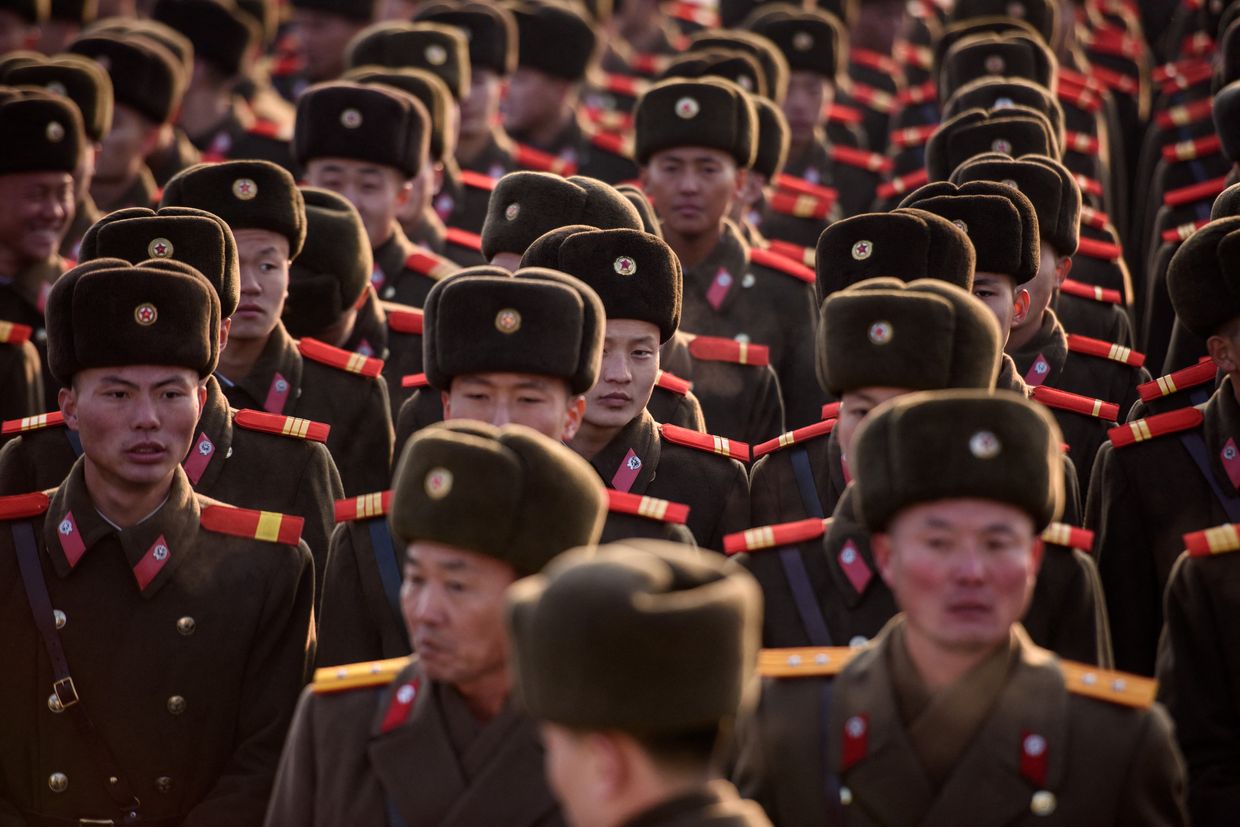

Ukraine's position in Kursk Oblast important for possible negotiations, Blinken says
Outgoing U.S. Secretary of State Antony Blinken said on Jan. 6 that Ukrainian positions in Russia's Kursk Oblast could play an important role in possible talks with Russia, the AFP news agency reported.
The Biden administration, whose term expires in a few weeks, has sped up the delivery of military assistance to Ukraine to put Kyiv in the strongest possible position in potential peace negotiations.
"Their (Ukraine's) position in Kursk is an important one because certainly it's something that would factor in any negotiation that may come about in the coming year," Blinken told reporters in Seoul.
The comments come at the heels of reports of Ukraine launching new offensive operations in Kursk Oblast after months of being on the defensive.
Ukraine launched the cross-border incursion in early August, allegedly seizing 1,300 square kilometers (500 square miles) of Russian soil. Since then, Moscow has deployed reinforcements, including thousands of North Korean soldiers, and reportedly recaptured around half of the lost territory.
President Volodymyr Zelensky also called the Kursk incursion an important "trump card" in any potential talks.
There are growing expectations of possible peace talks in 2025 as U.S. President-elect Donald Trump, who will take office on Jan. 20, pledged to bring both sides to the negotiating table.
Trump's return to the White House sparked concerns among Ukraine's allies due to the president-elect's past criticism of the Biden administration's support for Kyiv.
In comments made since his reelection, Trump hinted at a possible reduction of U.S. assistance but said he would not "abandon" the country, instead aiming to leverage Washington's aid to push Russia to negotiate.
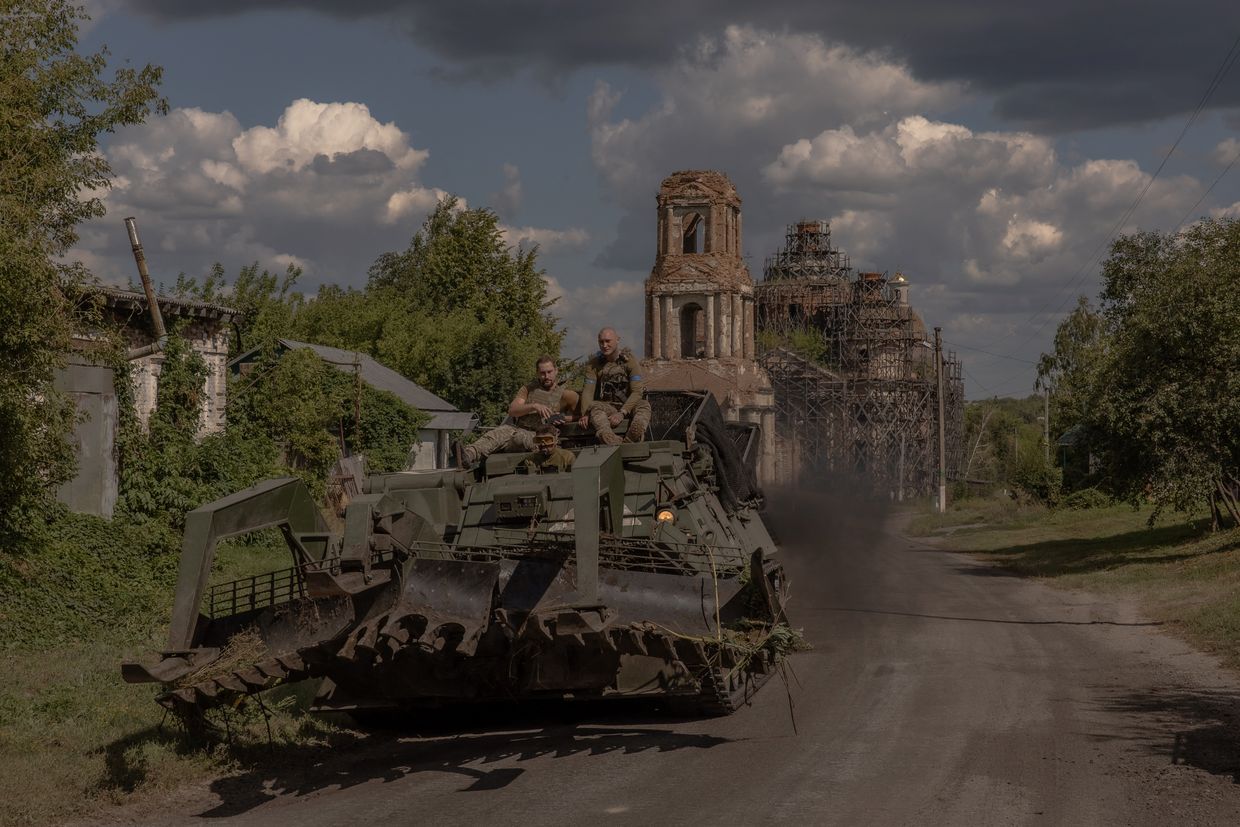

Zelensky offered to buy weapons from incoming Trump administration with frozen Russian assets
President Volodymyr Zelensky previously offered U.S. President-elect Donald Trump for Ukraine to buy American weapons at the expense of $300 billion in frozen Russian assets, Zelensky revealed in an interview with American podcaster Lex Fridman published on Jan. 5.
"This is one of the security guarantees. Take the money, what we need for our interior production, and we will buy all the weapons from the United States. We don't need gifts from the United States," Zelensky said in his wide-ranging interview with Fridman.
"It will be very good for your industry. For the United States. We will put money there. Russian money. Not Ukrainian. Not European. Russian money. Russian assets. They have to pay for this," Zelensky added.
Zelensky did not comment on Trump's reaction to the suggestion.
Trump and his team have been critical of U.S. spending to support Ukraine. Michael Waltz, Trump's appointed National Security Advisor for his upcoming term said on Dec. 15 that a "blank check… just isn't a strategy."
Despite previously criticizing U.S. aid for Ukraine, the Financial Times reported on Dec. 21, citing undisclosed sources, that Trump may not halt U.S. military support for Ukraine.
Zelensky has taken steps to foster a positive relationship with Trump, despite previously having a fraught relationship stemming from Trump’s 2019 impeachment trial. The two leaders met on Sept. 27 in the midst of the U.S. presidential election campaign. They met again on the sidelines of the reopening of Notre Dame Cathedral, alongside French President Emmanuel Macron on Dec. 7.
"He (Trump) is strong… He is young… and his brains work," Zelensky said when asked why he thinks Trump won the U.S. presidential election in November.
Zelensky previously said that the country must do everything possible to end the war through diplomatic means in 2025, adding that a war would "end faster" under a Trump administration.
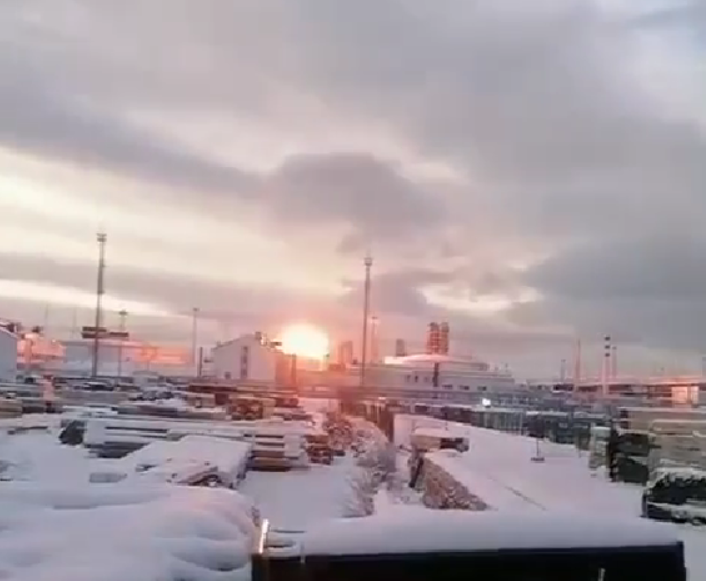

Lukashenko apologized to Zelensky for Belarus' role, denied responsibility early in Russia's invasion, Zelensky says
Shortly after Russia's full-scale invasion began, Belarusian dictator Alexander Lukashenko apologized to President Volodymyr Zelensky over the country's involvement in the war, Zelensky revealed in an interview with American podcaster Lex Fridman published on Jan. 5.
"A few days into the war, I spoke with Lukashenko on the phone, and he apologized… he said, 'It was not me, missiles were launched from my territory, and (Russian President Vladimir) Putin was the one launching them.' These are his words, I have witnesses," Zelensky said in his wide-ranging interview.
"'And I apologize,' he said. 'But believe me' — that's what he told me — 'Volodya (referring to Volodymyr Zelensky), this is not me. I’m not in charge,'" Zelensky added.
In response, Zelensky said that he called Lukashenko "a murderer," questioning why Lukashenko allowed Russia to launch missiles at Ukraine from Belarusian territory.
Lukashenko became increasingly reliant on Russia after isolating Belarus from the West, following Belarus' 2020 election. Lukashenko's opposition and the West condemned the results as fraudulent.
Lukashenko cracked down on mass protests that broke out in response to the fraudulent election results. Since then, Belarusian authorities have increasingly suppressed political freedoms and have become complacent in Russia's war against Ukraine.
Despite not being directly involved in Russia's full-scale invasion of Ukraine, Belarus continues to host Russian troops and missiles on its territory.
Lukashenko asked Putin on Dec. 6 to deploy the Oreshnik missile systems in Belarus, a weapon Russia recently used to strike Ukraine, Russian state-controlled news agency RIA Novosti reported. As many as 10 missile systems will be deployed, according to pro-Kremlin journalist Alexander Yunashev.
Belarus will be holding its next presidential election on Jan. 26 where Lukashenko is expected to be handed a seventh term in office.
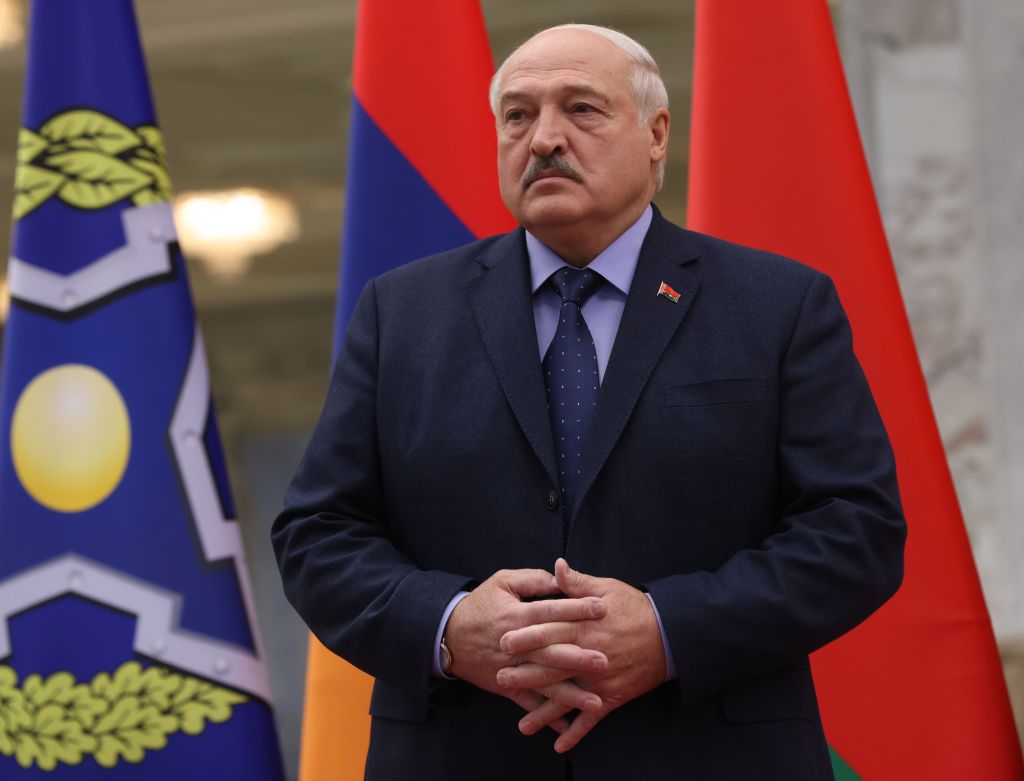

Russia fueling Transnistria energy crisis for propaganda, destabilization, Moldova says
The energy crisis in Transnistria, triggered by Russia's Jan. 1 cutoff of gas supplies, is part of a broader Russian plan to manipulate and spread propaganda, Moldovan government spokesperson Daniel Voda said on Jan. 6.
"Russian propaganda tries to create a story in which Moldova becomes a ‘problematic actor,’ although the government has proposed clear solutions to avoid the crisis," he said.
Gazprom, Russia’s state-controlled energy giant, halted gas deliveries to Moldova, citing alleged unpaid debts by Moldovagaz. Moldovan officials disputed these claims, noting an international audit failed to verify the debts.
Transnistria, a Russian-occupied region since the early 1990s, relies heavily on Russian gas and has faced industrial collapse due to widespread power outages and heating failures.
Voda said the crisis reflects Russia's deliberate effort to create fear and unrest. "This energy crisis is more than an economic problem — it is part of a larger Russian plan of manipulation and propaganda designed to create fear and discontent on both banks of the Dnister."
Nearly 72,000 homes and 1,500 high-rise buildings in Transnistria are without heating or hot water, according to Vadim Krasnoselsky, leader of the region’s Russian-backed administration.
Moldova previously offered to help Transnistria purchase gas through European platforms, but local Russian-backed authorities rejected the proposal, claiming Western energy prices are "higher and unstable."
The spokesperson criticized the refusal, calling it a failure to "cooperate for the benefit of the people." Russian propaganda has sought to blame Chisinau for the crisis, alleging that Moldovan authorities intentionally caused power outages to punish the region, Voda said.
While a transit agreement for Russian gas through Ukraine expired on the same day, Gazprom maintains that Moldova’s debts, not transit issues, prompted the suspension.
While the rest of Moldova has transitioned to European energy supplies through Romania, Transnistria remains heavily dependent on Russian gas.
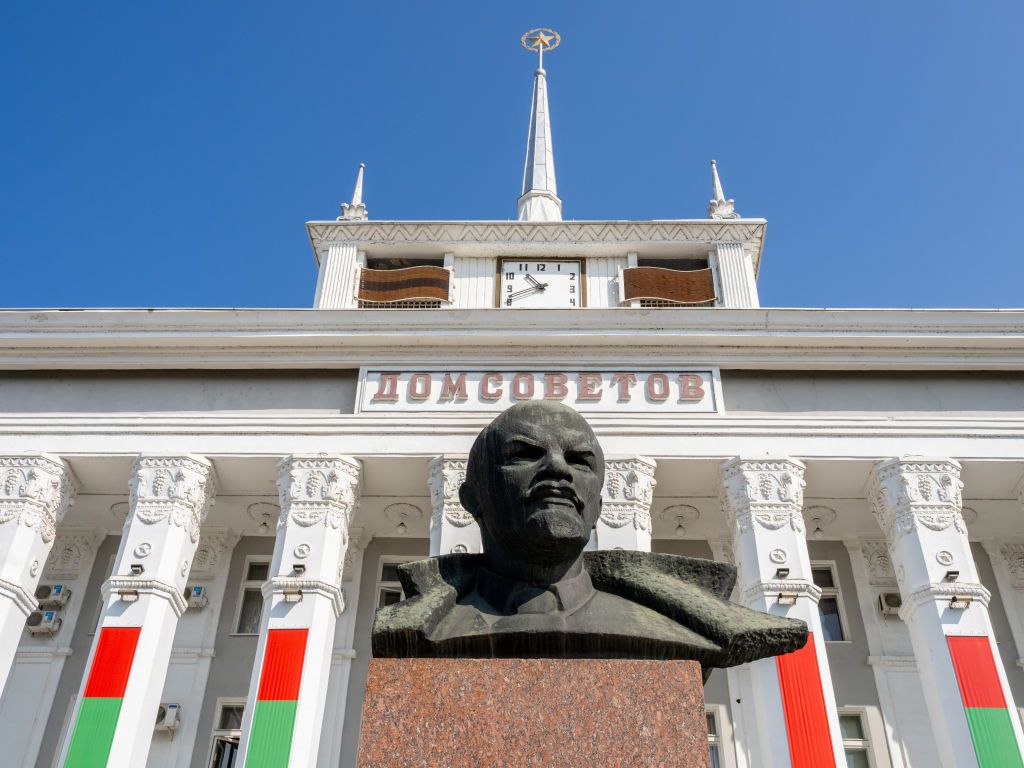

Macron sees no 'quick and easy solution' to Ukraine, urges 'realistic' discussions on territory
French President Emmanuel Macron on Jan. 6 called on Ukraine to have "realistic discussions on territorial issues" as they alone can conduct them.
"There will be no quick and easy solution in Ukraine," Macron said in an address to French ambassadors in the Elysee Palace. U.S. President-elect Donald Trump has previously vowed to bring both sides to the negotiating table and swiftly end the war.
"The U.S. must help us to change the nature of the situation and convince Russia to come to the negotiating table," Macron said in comments quoted by France24.
Russia currently occupies around 20% of Ukrainian territory. President Volodymyr Zelensky has acknowledged that Ukraine's military currently lacks the strength to retake all of it by force, noting that some regions, like Crimea, will have to be liberated through diplomatic means.
In his address, the French head of state warned of repercussions for Europe and the U.S. should Ukraine emerge from the war on the losing side.
"The new American president himself knows that the U.S. has no chance of winning anything if Ukraine loses," Macron said.
France's president also said that it would be up to European countries to "build security guarantees" for Ukraine, a statement in line with his calls for greater European strategic autonomy.
Paris has spearheaded the idea of deploying European peacekeepers to Ukraine after a possible ceasefire deal is reached. Trump, who vowed to get the U.S. "out" of the conflict, has reportedly backed the idea, while Russia has rejected it.
Trump's imminent return to the White House, Ukraine's military setbacks, and Russia's growing economic difficulties have contributed to expectations of possible peace talks in 2025.
Kyiv's allies have said they seek to put Ukraine in the strongest possible position for any possible negotiations, with German government saying on Jan. 6 that peace cannot be "dictated" from Moscow.
